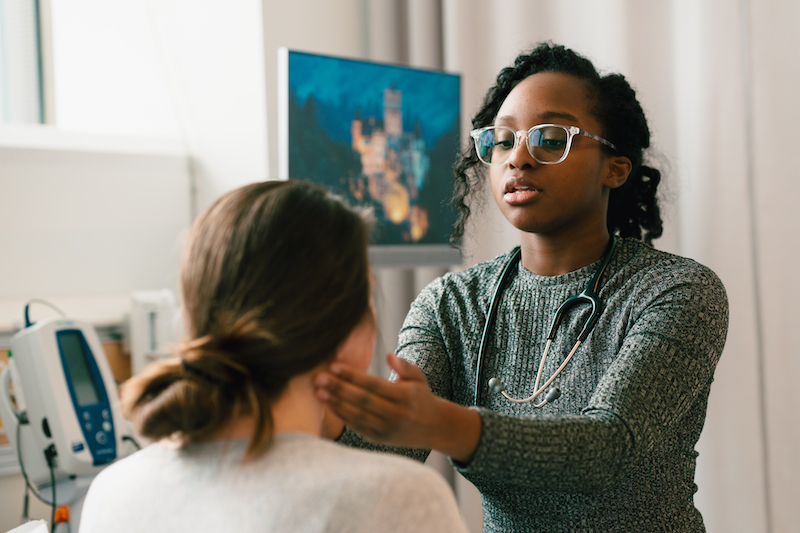- Home
- News
- Recent News
- Open Forum on Advancing Health Equity
Open Forum on Advancing Health Equity Highlights the Power of Collaboration
In January, the Massachusetts Business Roundtable (MBR) held a virtual open forum to discuss the work of the Health Equity Compact, a growing group of over 80 leaders of color across Massachusetts. UMass Boston Provost Joseph Berger joined the roundtable to discuss how policymakers, employers, health care providers, insurers and others can work together toward advancing health equity.

In January, the Massachusetts Business Roundtable (MBR) held a virtual open forum to discuss the work of the Health Equity Compact, a growing group of over 80 leaders of color across Massachusetts. UMass Boston Provost Joseph Berger joined the roundtable to discuss how policymakers, employers, health care providers, insurers and others can work together toward advancing health equity.
Berger emphasized the need for a full range of expertise to effectively address health inequity, which includes the cultural and linguistic wealth that students bring to UMass Boston, the university with the most diverse student body in the region.
“This is mission-driven work. None of us can do this alone—it’s a big lift,” he said.
Led by the UMass Boston strategic plan, Berger said enhancing university partnerships will help address this kind of work, such as with the expansion of the Clinical Leadership Collaborative for Diversity in Nursing (CLCND) program at the Manning College of Nursing and Health Sciences, in partnership with Mass General Brigham.
“UMass Boston is working with partners to advance health equity, address health inequities, and prepare the next generation of diverse health care workers who look like and come from similar backgrounds of the people that they are serving,” he said. "Who understand the cultures of these underserved populations, who understand what must be done to develop sustainable solutions, and who understand that investing in health inequities means investing in our communities and leads to a stronger economic future for the commonwealth?
“We are proud to be one of the many partners in these endeavors, and we think the kind of partnerships that are possible with all of you here will lead to a more equitable, ethical, and prosperous future for all of us.”
Compact members Michael Curry and Jeff Sanchez presented findings from a recent Compact report that showed the moral and economic case for addressing health equity, citing the annual $5.9 billion cost for health inequities, and the loss of labor productivity in the state that’s equivalent to about 64,000 full-time workers per year.
Curry and Sanchez spoke about the inequities across communities within Massachusetts, and new legislation and significant reforms that have been accomplished through Compact partnerships, such as the Act to Advance Health Equity, which aims to advance systemic policy changes that will support the fair and just opportunity for all residents of the Commonwealth to live healthy lives.
By engaging with communities through surveys, forums, and summits, members of the Compact can better understand the specific issues that impact each community, but there is more to be done to work toward the shared goal and responsibility of achieving health equity for all, Sanchez said.
“We need awareness, we need support, we need action,” Curry said. “If not now, then when? And if not us, then who?”
